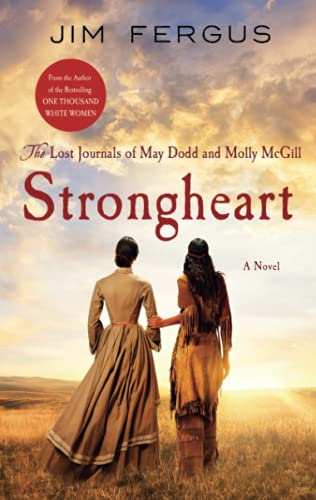Strongheart (One Thousand White Women Series, 3)
Strongheart, the third and final novel in Fergus’s One Thousand White Women trilogy, deepens and shades the well-known horrors of genocide and land theft unleashed against Native American tribes.
This series imagines a benighted attempt in 1873 by President Grant to “civilize the Indians.” In this bizarre deal, one thousand white women from penitentiaries and asylums were handed over to warriors from Cheyenne and other tribes in exchange for one thousand horses. Some of these women did assimilate, finding comfort, meaning, and sometimes love in their forced unions. Most found themselves trapped between two cultures, alienated from both.
After the Battle of Little Big Horn, May Dodd and Molly McGill help create Strongheart, an egalitarian warrior society seeking both revenge against white men and a new home where they can find peace. There’s also a handsome, part-Comanche cowboy, Chance, with whom May has a romance. The novel builds on imagined narratives, as journals of the fictional Molly and May are passed down to a descendant, Molly Standing Bear, who gives them to an editor and his son. Readers new to the series may have a rough start with these layers of narrative and multiple characters, many of whom have both European and tribal names and extensive backstories. Stilted dialogue and self-conscious dialect are problems.
Once acclimated, however, readers will find an action-packed saga of raids, escapes, subterfuges and conflicting loyalties. The backdrop is systemic abuse of women, starting from incarceration to forced marriage, rape, infanticide, and loss of homeland. Yet the Strongheart women persist, forming powerful bonds, exacting rough justice and building sturdy self-respect despite overwhelming odds.
Readers who can overlook the flaws in Strongheart will find a unique view of the complex impacts of westward expansion on both white and tribal women.










